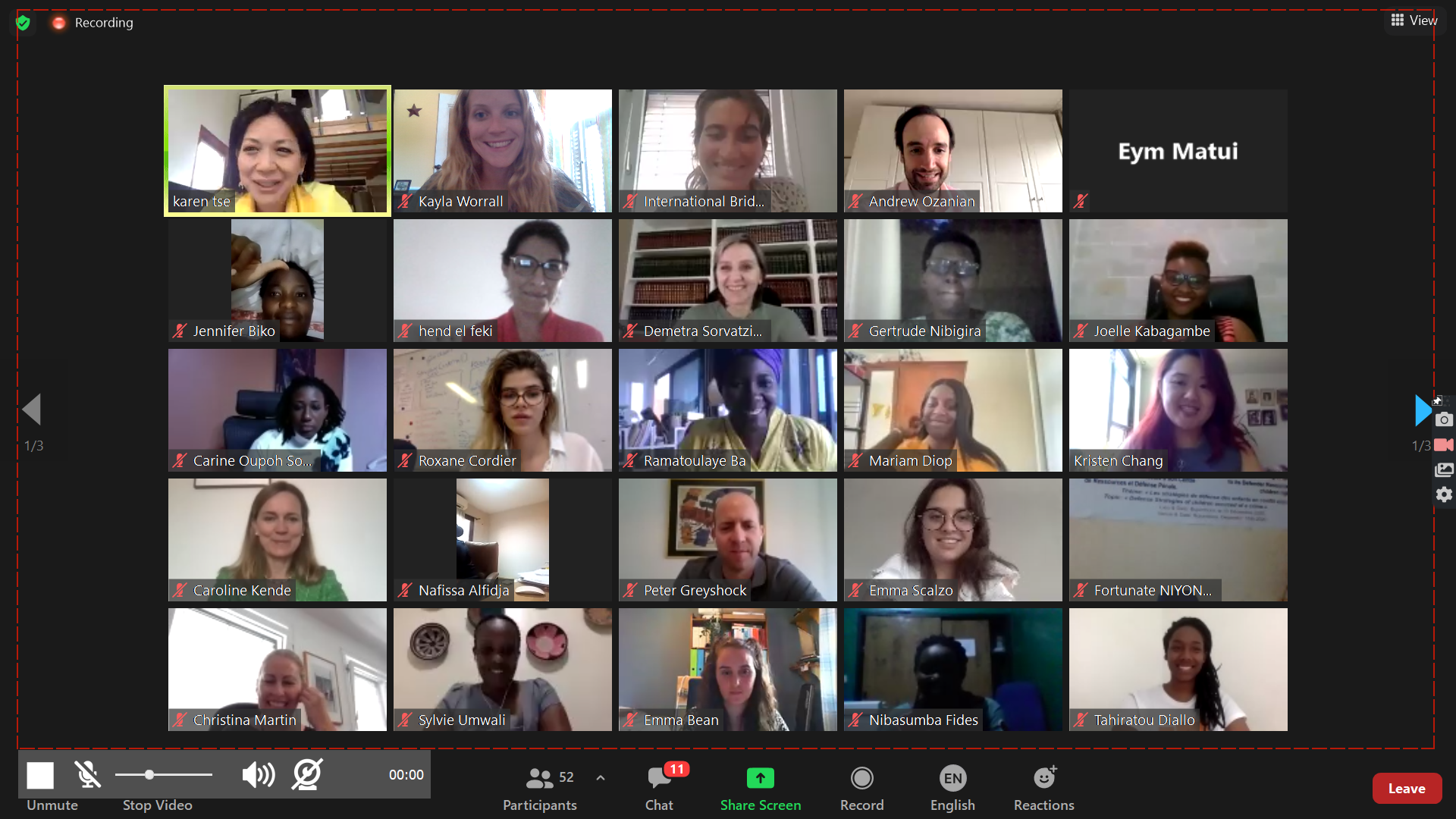AA2J - African Access to Justice Women’s Network Launch
AA2J, African Access to Justice Women’s Network, is an initiative created by International Bridges to Justice to create a network of African women defense lawyers. AA2J selected ten African women defense lawyers to be the network’s fellows. These fellows have agreed to take on 700 cases of women detainees. Thus, to celebrate their accomplishment, discuss their projects, and provide them with educational seminars, IBJ held the AA2J launch event last week. The ten fellows practice law in ten different African countries; the Democratic Republic of Congo, Rwanda, Burundi, Tunisia, Niger, Senegal, Ivory Coast, Tanzania, Zambia, and Kenya. Moreover, each fellow was asked to bring ten other women defense lawyers from their country to attend the launch as well. Therefore, 100 women from ten African countries attended the event.
The launch consisted of both private and public events. The educational sessions were private and just for the 100 women defense lawyers. However, at the end of the first day, the award ceremony was public and at the end of the entire launch, there was a networking session that women defense lawyers from across the world attended.
I would say the AA2J event “went off without a hitch”. Behind the scenes, myself, and interns from around the world worked tirelessly to ensure the African women lawyers had a positive experience. We communicated amongst ourselves to sort out technical issues, relayed messages from the women defenders, and ensured all sessions were interpreted and recorded in English and French.
In particular, my role was to record the event in English and be the liaison for the fellow from Zambia and the Zambian women defenders she invited to the event. However, I only participated in and recorded the afternoon sessions because of the time difference. Thus, I attended the educational sessions discussing the rights of the accused, the rights of a defense lawyer, and the past present, and future of each countries’ criminal justice systems. I also attended the public awards ceremony and the worldwide networking session.
During the educational sessions, we split into country-specific breakout rooms. Thus, I was in the Zambia breakout room where I facilitated the conversation, took notes and had discussions with the women lawyers from Zambia.
During the rights of the accused session, we first listened to a lecture given by Larisa Dinsmoor, an experienced trial attorney in Orange County, California. Then in the breakout rooms, we went through a checklist of rights and assessed whether Zambia had the rights enshrined in its constitution or elsewhere in its laws. The checklist included; rights of the defense, right to the presumption of innocence, right to a fair and public trial, right against double jeopardy, right not to be tortured, right to remain silent, right to notice and information, and the right against unlawful arrests, detentions, and searches. While going through the checklist, it was clear that Zambia does have most of these rights in its constitution. However, a reoccurring issue mentioned by the defense lawyers was that even though the rights are listed within the constitution, it does not mean they are upheld in practice.
Continually, during the past, present, and future breakout room the Zambian women discussed past trends in their criminal justice system, the current situation in Zambia, and what they hope their criminal justice system will look like in the future. In particular, the Zambian women said that in the past there has been prolonged detention of accused persons, meaning, when someone was arrested it took long periods of time for them to be charged and have their day in court. However, presently, Zambia has laws in place that say a person who has been arrested must appear in court within 24 hours. Yet, the women pointed out that even though this new law is in place, it does not mean it is implemented. They stated that this is in part because officers can arrest people on mere suspicion and because of administrative backlog. Finally, the women lawyers hope to see improvements in the future, as there have been grass-roots campaigns to raise awareness so people are aware of their rights and the governing laws.
Moreover, in the rights of a defense lawyer session, Michael Karnavas, an American-trained lawyer who practices primarily at The Hague, gave an informative lecture on the importance of case preparation, case analysis, and developing the theory of the case. Moreover, the Zambian women discussed a defense lawyer’s right to communicate with detained clients and to access files. In discussing this, they emphasized the importance of confidentiality to gain respect and trust from their clients.
Finally, the entire launch came to a close with a public networking event where women defense lawyers from across the globe came together to celebrate the fellows, discuss what it is like being a woman defense lawyer, and listen to an inspirational speech given by Nancy Hollander, an internationally recognized criminal defense lawyer.
In conclusion, the AA2J launch was extremely successful and I am honored to have been part of such an inspirational event. I hope the network of women criminal defense lawyers continues to grow in the future so that women across the world can support one another in the field of law.

Group screenshot of some of the African women defenders, IBJ interns, and IBJ employees.